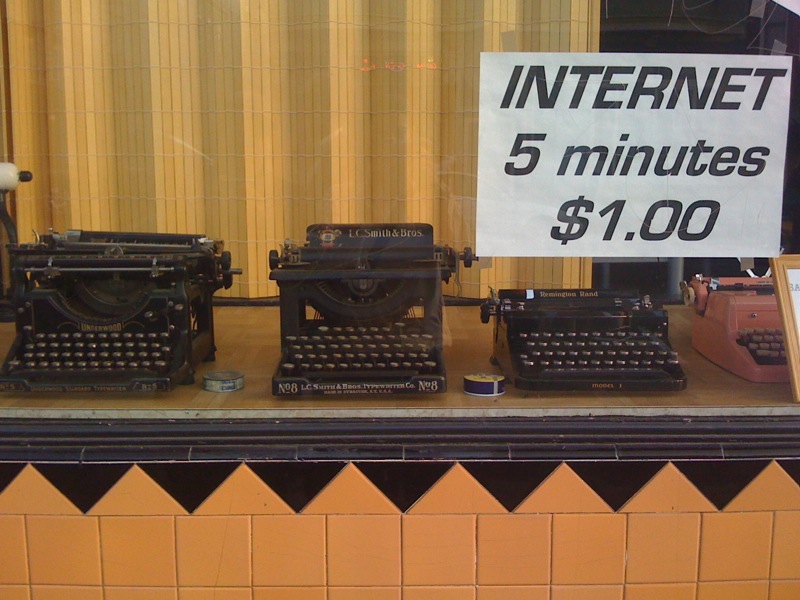
Here’s one last look at what my fellow Networked Media students have been blogging about this semester:
Courtney discusses whether form or content are more important in a book. She argues content is more important but I would disagree. For me, the order of events seems to be integral to a good book. I feel even if you have the juiciest content, if it’s not organised correctly it can end up being a whole lot of mumble jumble. Structure is everything, but after completing the Networked Media course I’m more open to the loosening of structure.
I seriously love Tilly’s post about the cafe Combi! I’m craving that delicious bowl of goodness right now and it’s the middle of the night! I’ll be making a trip down to Elwood to feed my temple soon.
Rebecca’s post about the Week Eleven readings fleshes out the idea that all things are connected to something else. This ties in well with discussions of neutrality that took place several weeks ago in the Symposium. Rebecca also hints at notions of technological determinism and whether or not technology is the main driver of cultural change.
To wrap up my last post for the semester, I’d like to say thanks for everyone’s contributions this semester. My brain has been strained at times but I’ve learnt a lot.
Enjoy the rest of your journey and have a great summer.








